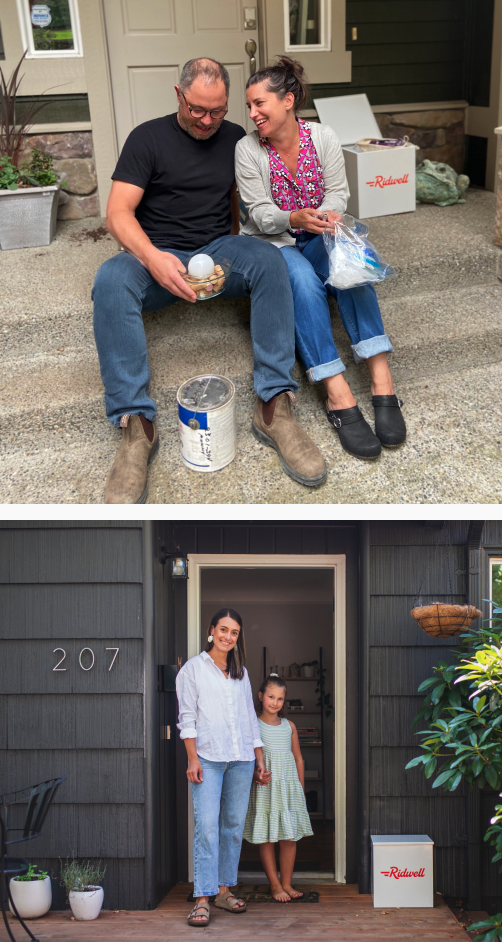Batteries
What items can we take?
Please tape over battery terminals for safety, particularly 9-volt, lithium, and any large batteries
Alkaline batteries
Lithium/Lithium-ion batteries
Nickel batteries
Zinc batteries
Button cell batteries
Other household batteries
What isn’t in this category?
Broken or damaged batteries
Dispose of these at a local HHW facility
Bloated/swollen batteries
Dispose of these at a local HHW facility
Lead acid batteries
Car batteries
Batteries.
Your spent batteries contain valuable materials that can be reclaimed for recycling! We take your used batteries, and our partners separate the chemicals from the metals to be used for building other products.
This category includes all batteries that you would use around the house. All the batteries we collect are recycled, so if you have new batteries that you don't need, we recommend gifting them via your local Buy Nothing group!

Why use Ridwell?
When you put your batteries in your Ridwell bag, you know that they will be responsibly recycled with our vetted partners!
Ridwell takes two of the most common types of household batteries: alkaline and lithium. Alkaline batteries have a steel casing that can be recovered and recycled with other scrap metals, while the manganese and zinc electrodes inside can be used as ingredients in making fertilizer.
Lithium batteries include the rechargeable batteries found in electronics and round button batteries. Their next life begins when they are split open using a shredder or a high-speed hammer, then submerged in a caustic water that neutralizes the electrolytes and allows the recovery of the metals. The remaining solution is processed to create materials for new batteries.

Partnering with Call2Recycle
Call2Recycle, a not-for-profit organization, operates the country's premier battery collection, logistics, and recycling program operating with a commitment to safety and environmental excellence. After 26 years and more than 140 million pounds of batteries safely and responsibly recycled across the U.S., Call2Recycle provides effective, efficient, and compliant battery management of rechargeable and single-use household batteries.
FAQ
Should I do anything differently if I have a lot of batteries to recycle?
We pick up your batteries every two weeks which we hope makes it easy to clear them out of your home regularly!
For safe storage of lots of batteries, please use electrical or clear tape to cover the terminals of your batteries (particularly 9-volt, lithium, and any large batteries) to prevent them from coming into contact with each other.
Can you take corroded batteries?
Yes! If your batteries are corroded, place them in plastic bags inside your battery bag - we’ll recycle the plastic as well! If your batteries are damaged (broken and/or leaking), please check with your local hazardous waste disposal program for recommended disposal procedures.

Join the movement to build a future without waste.




